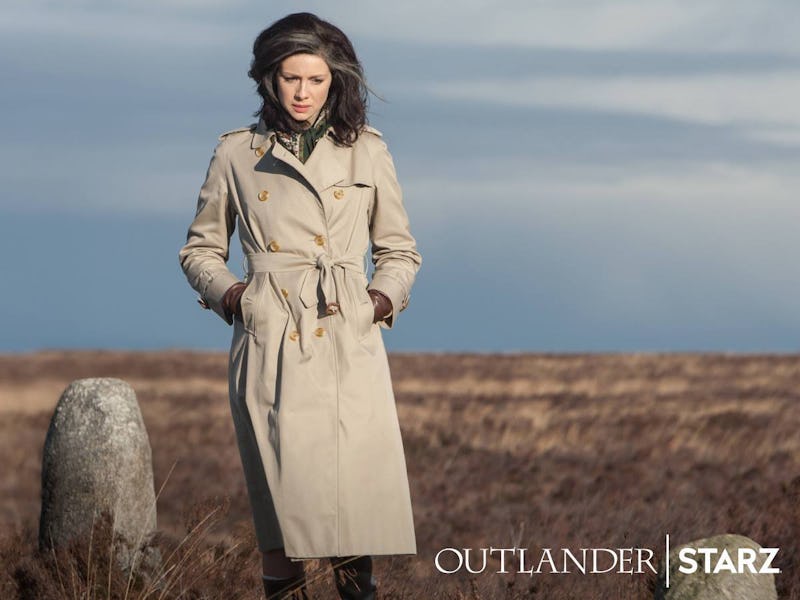Outlander Season 3 Could Save the Show With a Progressive Agenda
If 'Outlander' is bolder about changing the books, Season 3 could be its best yet.

When a show experiences a sophomore slump, it’s often hard to bounce back — but Outlander is in a unique position. Its first season made waves with its unusually progressive attitude towards female sexuality. It’s all too rare to see a female character afforded the balance of depth and sensuality as Claire Fraser (Caitriona Balfe), and both the show and character landed on TV screens as a breath of fresh air.
Season 2, however, left much to be desired, bogged down with a dramatically inert premise (Jamie and Claire spend all season bemoaning their inability to kill Bonnie Prince Charlie because Plot Reasons — until suddenly they change their minds at the 11th hour and fail anyway). That’s not even mentioning characters whose arcs went nowhere (the Comte St. Germain), and a plot that relied too much on improbable coincidences (Black Jack appearing everywhere) rather than organic character motives. In Season 2, the show shrugged off the areas in which it was exceptional, like sex and gender dynamics and leaned into its weak spots.
Season 3 must now prove that the promise that Outlander displayed in Season 1 was not a fluke. Luckily, it has ample opportunity in three key areas.
Rape
Outlander features a lot of rape. Season 1 ended with one of the longest, most harrowing rape scenes on recent television. In Season 2, not one but two characters were raped (Mary and Fergus). The scenes were mercifully shorter than the sequence in “To Ransom a Man’s Soul,” but they were arguably more disturbing, as one character was a minor (Fergus). Season 3 is approaching yet another rape scene, and this will be harder to swallow because — spoiler alert — Jamie is the perpetrator. But if the show wants to continue being renowned for its thoughtful navigation of gender issues, it could use this thorny area not as a breaking point but rather as an opportunity to challenge its source material. The books were written in the ‘90s, when cultural conversations around consent were different. Today, particularly when we’re questioning the amount of rape on television, Outlander can’t be afraid to depart from its source material. Just as Jamie and Claire try to change the past, the Outlander writers can too.
Lord John Grey
Part of what made Outlander’s first season great was its in-depth approach to female sexuality. Season 2 lost that thread, as it put relationships on the back burner for the kinds of political machinations that other shows frankly do better. While there’s nothing wrong with this in theory, sex and interpersonal dynamics are Outlander’s strength. But a new Season 3 character — Lord John Grey, who will be played by David Berry — will give Outlander the opportunity to navigate a gay man in as thoughtful a manner as it has navigated women thus far. It should look to James Flint on Black Sails as an example.
David Berry will play Lord John Grey
Mr. Willoughby
Yi Tien Cho, otherwise known as Mr. Willoughby, is Outlander’s version of Long Duck Dong from Sixteen Candles. When we watch it now; it’s horrifyingly racist. When John Hughes wrote it in 1984, there was far less of a demand in the wider culture for writers to not be racist. The same applies to Voyager, which came out in 1993. If Outlander wants to avoid being Sixteen Candles, it could either omit Mr. Willoughby entirely or develop him beyond a caricature and use it as an opportunity to include a fascinating portrayal of a Chinese man in 1700s Scotland.
Outlander Season 2 suffered because the show seemed unwilling to escape the shackles of the books. It could continue in that vein and stray into a series of increasingly troubling plot areas — or it could boldly save the show and remind us of why Season 1 was so captivating. It’s the show’s choice. All it needs to do is step through the stones.